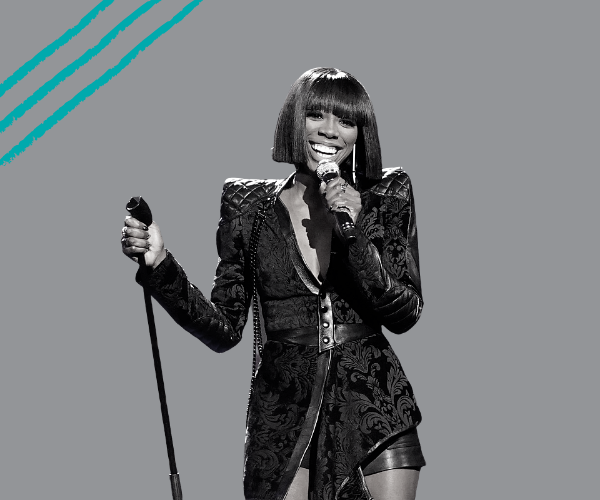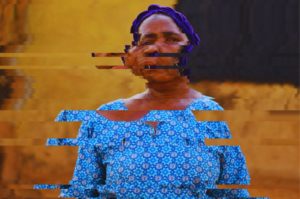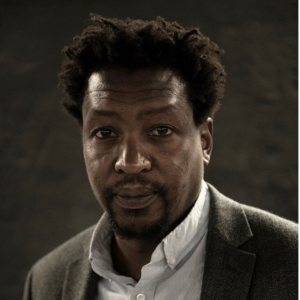
A few weeks ago, as I watched Yvonne Orji explain Nigerian slang to her audience, feelings I couldn’t immediately name rose in me. In a 12-minute vignette for Vanity Fair, Orji broke down the sometimes unexplainable, always hilarious sentiments behind Nigeriannisms like ‘wawu’, ‘tufiakwa’, ‘ashewo’, ‘yansh’ and other slangs.
As I watched, I tried to work through what I was feeling. There was unrestrained mirth –- because Orji is nothing if not charming. There was pride because Orji’s 886,000 Instagram followers, most of whom are not Nigerian, were learning about Nigerian culture. But, somewhere under all of that, there was apprehension. As I watched the last clip where she explains ‘You Go Wound,’ my heart sank. She had given the wrong explanation. Here, one of the crowned voices of the Nigerian experience, telling the world the wrong thing.
Orji is the archetype of the Nigerian-American millennial. Born in Nigeria to a middle-class family, they spent their early years in Nigeria and immigrated to the United States as children. In the late 80s and early 90s, when families like Orji’s moved to America with their parents, Nigeria was under military rule. This was a pivotal time for the country –- its downward spiral was official. It culminated in a crash of Nigeria’s exchange rate, per capita income, and global standing. Hundreds of thousands responded to this change by fleeing the country, primarily for the United Kingdom and the United States.
The children of these immigrants were young enough to have only faint images of Nigeria, images, it bears repeating, that are of the Nigeria of the 80s and 90s. In addition to this fuzzy idea of Nigeria, these millennial immigrants came of age in America, at the height of the media portrayal of Africa’s wars, civil unrest, and humanitarian crises in countries such as Somalia and Burundi. Immigrant children, along with the rest of the world, grappled with images of Africa as a poverty-stricken wasteland. This generation of immigrant children in America will be the first to tell you they were victims of the pejorative ‘African booty scratcher’ taunt, which referenced a child with black, ashy skin, monkey-like features, and a ‘village’ accent.
In 2000, when I was in SS 1 (10th Grade), Ade A’s parents sent her from America to study at my school, and she ended up in my class. The average student at this ‘international school’ had parents who were well connected economically and politically, and the students themselves had travelled the world. It wasn’t the Nigeria Ade expected. One day, she confessed her disappointment with her experience. She expected a school in a hut, and classmates living in trees, naked, dark-skinned, and ugly. “I thought I would be the lightest-skinned and the coolest kid in class,” she said. We were more amused than offended. In that moment, I realized that Ade was having problems adjusting to many things – in sum, a new country. We had versions of Ade in every class – children whose parents wanted them to touch base with their ‘Nigerian heritage’ before they came of age, though not all of them came with problematic stereotypes. As these Nigerian-American millennial immigrants were getting an education in what their country really was, immigrant children across the ocean were actively distancing themselves from their African roots or, at least, nursing some trauma around it. To survive bullying, they had to assimilate.
In the early 2000s, things also started looking up for Nigeria. Democracy brought The Fourth Republic and president Olusegun Obasanjo, who had the will, expertise and networks to grow the economy, or, at least, to try. I remember this time clearly because, as the country was opening up, I was coming of age. By 2003, I was studying for my A’ Levels (a post-secondary, pre-university program) in Johannesburg, South Africa. I had classmates from all around the continent, and they knew and loved Nollywood stars like Mama G and Omotola Jalade-Ekeinde. I remember sitting in the common room, on our striped blue couch, the location of one too many afternoon naps, watching MTV Base and seeing a music video from PSquare followed by Kelly Rowland. I remember being told enthusiastically, “you Nigerian ladies are so gorgeous!” because Agbani Darego had been crowned Miss World in 2001. At the same time, movements like Fela Durotoye’s Proudly Nigerian, The Future Awards Africa, and the emerging new Nollywood started to place Nigerian youth culture in front of a global consciousness. This was not the Nigeria of the 90s.
Nigeria’s music industry is easily the highlight of this emergence. Afrobeats, arguably one of the leading influences in music culture today, has now fully come of age in global culture. Beyoncé’s last album The Lion King: The Gift was a celebration of African, primarily Nigerian, artists and producers such as Tiwa Savage, Yemi Alade, Bankulli Osha, and Wizkid, joining leading American recording artists who have sampled afrobeats on their recent albums and who have collaborated with its leading lights like Burna Boy, Seyi Shay, and Davido, to name a few. Many immigrant millennials remember the moment they felt that Nigerianness had arrived on the global stage. For many of them, it was when they heard a Nigerian song on US radio. Nigeria was now cool. Everything had changed. That moment ushered a new wave of pride in being from Nigeria – love for Nigerian music, movies, culture, food, and its people. They were no longer ‘African booty scratchers.’
Unfortunately, childhood trauma isn’t so easily squashed. What has emerged is a worrying undertone to this renewed pride, what seems to be a need for Nigerian-Americans to bring their American friends – former oppressors of sorts – into their world in exchange for approval. The Nigerian renaissance has birthed a performative Nigerianness. Nigerian writer @Saratu said in exasperation recently: “these diaspora Nigerians who need to prove to their Black American and white friends [that] they don’t come from a jungle need to be stopped.” The problem with the fluidity of being Nigerian and American (or anything else) at a time like this is that it shows clearly those who are from us but not really of us: those whose Nigerianness is convenient, forced, and performative.
This topic is not new to me or many other Nigerians, but it grates afresh each time. It did not fly over our heads when Insecure, a leading black series starring Orji, reinforced a negative stereotype in S4 Episode 1 of the Nigerian scammer, in a cheap jab which added nothing to the scene or story. The day after the episode aired, Nigerian Twitter made its anger known. Orji’s response and her back and forth with Insecure writer Amy Aniobi, also an American of Nigerian descent, were at best a cop-out.
In her comedy, Orji’s Nigerian is a crude, loud, flat character. Her HBO Comedy Special Momma, I Made It, which debuted Saturday, June 6 opens with a joke about Nigerian scammers, spends the hour flipping back and forth between a forced Nigerian accent and her actual American accent on “Nigerian” curses, dramatic parents, and Nigerians being incapable of giving proper directions.
We see similar arcs elsewhere. Gina Yashere, a British comedian of Nigerian descent, built her career on ribbing Nigerians for white laughs. There is no nuance to her jokes about Nigerians or the speed with which she throws us under the bus as crude thieves and scammers. Yashere is at ease reinforcing stereotypes and othering Nigerians. She is also a creator and lead writer on Bob Hearts Abishola, the Chuck Lorre sitcom which premiered on CBS in 2019, leading to a collective Nigerian cringe at its over the top representation of the accent and culture.
All of this leads to the central question: It is great to see Nigerians in mainstream American and British media, but is this us? To these hyphenated Nigerians, being #ProudlyNaija is like a hashtag – cute, palatable, and skin deep. To those of us with more skin in the game – living, working, engaging with Nigeria – it is not so simple. “By all means, get your coins,” many are saying. “But do not misrepresent us. Speak out when we are misrepresented. And humbly realize that there are more voices, more perspectives, and more stories than yours.” Do not hang out with us only when it is convenient for you. We are not a prop.
This matters in a time of global reckoning about silencing, appropriation and the othering of non-white experiences. It underscores the larger issue of who gets the power to put out stories on behalf of ‘us’. This is important because as a result of proximity, Nigerian-Americans and their offspring are first in line to take our culture into American power rooms, especially in fields like film, television, publishing, and art. With that power comes responsibility. In this case, it is a responsibility to know what they are selling.
Cultural equality is a long game that requires strategic representation, so if these players aren’t going to do the work, then voices of local new and old storytellers like those on Netflix’s Made In Africa are more important than ever to round out the edges of the voices of hyphenated Nigerians and media-appointed ambassadors of our culture, who are preoccupied with telling the West “Look! This is the Nigeria they don’t show you.”
Our primary quest is for self-actualization and what it means to be a Nigerian today. Authors like Elnathan John, Ayobami Adebayo, and Tola Rotimi Abraham are a few of the new generation who are doing the work of having us look at ourselves critically; defining who we are for ourselves, to ourselves, not for the West.
It is crucial to make clear that Nigerian-Americans are one type of Nigerian, one small slice of the experience of being Nigerian. There are so many other ways to be Nigerian. Some Nigerians continue to remain in Nigeria, with the means to immigrate but with no interest to do so. Some were born in Togo. Others have lived in countries like Tanzania, South Africa, Germany, Nigeria, the UK, and the US. Some, like me, migrated in their 20s for education and remain here as reluctant economic migrants. All these experiences are different. Their stories matter. And these stories must not be silenced by a caricatured story of a Nigeria that doesn’t even exist anymore.
What Nigeria and many nations in Africa need at this moment is clear: more voices telling our rich narratives, especially voices that are not beholden to the West or its shrivelling gaze. We also need to pay closer attention to products like Momma, I Made It. What are they saying about Nigerians? What stereotypes will they perpetuate? What new ideas will they plant in the heads of their audience? What new problems may they create for us along the way? And most importantly, ‘Is this really us?’
************
About the Author

Damilola Oyedele is a Nigerian writer and product manager based in Austin, Texas. Follow her on Twitter @damioyedele for unfiltered takes on culture and faith.








 Yvonne Orji is doing a great job of mining her life as a Nigerian American. As a Nigerian who came to the US in the 80s, and as a dad of four millennials, I totally see my children in her, and me in her parents. Many rivers run through us.
No. Yvonne Orji improves upon our story. I think of Trevor Noah. She goes to Nigeria and joshes around respectfully on the streets and with her parents, she talks about our drive for excellence. Her accent and interpretations are a product of her lived experience since birth.
Exaggeration is a tool effectively used in comedy and drama to drive home points. Yvonne is the sum of her experience, as a comedy buff, I was taken by how good she is, how she is in control of the stage and of the audience. Her passion, energy and intellect won me over.
Have you read “African literature” lately? Yvonne though focuses on what my millennial kids would say and do in our home, and it’s quite funny. Our four kids were born here and it’s hilarious watching them mimic their parents. Yvonne has millions of us as a paying audience.
Watching @YvonneOrji was like watching my American kids teasing me when they thought I wasn’t listening. And her range and depth, impressive. She has hit a motherlode of material in Nigeria, America, and her parents, and she’s mining it brilliantly. When she said, “Tufiakwa!”
I have to say, having visited Nigeria this past December, having been on the streets, witnessing the deprivation that came with democracy since 1999, there’s not much to recommend to folks there. It’s a huge mess, and it says a lot about Yvonne that she tried to be respectful.
Today’s “African literature” with its hustle culture hawks the single story more than any other. It is refreshing to have someone with depth and empathy who improves upon the poverty porn story that is much of African writing. Kudos to Yvonne Orji for improving upon the silence.
Yvonne Orji has a commanding stage presence, chemistry with the audience (she has you feeding off her hands), and great knowledge of the subject matter she’s riffing off of. She reads, thinks, and acts beautifully. Many African writers could learn a thing or two from her, lol!
By the way, go to YouTube, search for “Nigerian parents” and all Yvonne is doing is there for free. Our kids born here are having fun processing their anxieties at our expense. In cute stilted accents. It is important that they be allowed to tell their stories!
Yvonne Orji is doing a great job of mining her life as a Nigerian American. As a Nigerian who came to the US in the 80s, and as a dad of four millennials, I totally see my children in her, and me in her parents. Many rivers run through us.
No. Yvonne Orji improves upon our story. I think of Trevor Noah. She goes to Nigeria and joshes around respectfully on the streets and with her parents, she talks about our drive for excellence. Her accent and interpretations are a product of her lived experience since birth.
Exaggeration is a tool effectively used in comedy and drama to drive home points. Yvonne is the sum of her experience, as a comedy buff, I was taken by how good she is, how she is in control of the stage and of the audience. Her passion, energy and intellect won me over.
Have you read “African literature” lately? Yvonne though focuses on what my millennial kids would say and do in our home, and it’s quite funny. Our four kids were born here and it’s hilarious watching them mimic their parents. Yvonne has millions of us as a paying audience.
Watching @YvonneOrji was like watching my American kids teasing me when they thought I wasn’t listening. And her range and depth, impressive. She has hit a motherlode of material in Nigeria, America, and her parents, and she’s mining it brilliantly. When she said, “Tufiakwa!”
I have to say, having visited Nigeria this past December, having been on the streets, witnessing the deprivation that came with democracy since 1999, there’s not much to recommend to folks there. It’s a huge mess, and it says a lot about Yvonne that she tried to be respectful.
Today’s “African literature” with its hustle culture hawks the single story more than any other. It is refreshing to have someone with depth and empathy who improves upon the poverty porn story that is much of African writing. Kudos to Yvonne Orji for improving upon the silence.
Yvonne Orji has a commanding stage presence, chemistry with the audience (she has you feeding off her hands), and great knowledge of the subject matter she’s riffing off of. She reads, thinks, and acts beautifully. Many African writers could learn a thing or two from her, lol!
By the way, go to YouTube, search for “Nigerian parents” and all Yvonne is doing is there for free. Our kids born here are having fun processing their anxieties at our expense. In cute stilted accents. It is important that they be allowed to tell their stories!
Love's Apprentice July 02, 2021 17:41
DAMI!! This is outstanding. I learned so much. You go!!